After extensive breaches over the past few years, companies have been working to develop a standard to protect data transfer over the internet. Protection with a single password is a thing of the past. The best way to secure one’s accounts is two-factor authentication or 2FA. In this case, one can access their account with an additional step of a unique code via application to log in. Typically, this involves a phone number/email address. This is useful in doubling the security of email accounts.
Set up Two-factor authentication (2FA) for Gmail in Outlook
Previously, if your Google account was configured with two-step verification, you needed a password to link your email account with the regular password process. It included an additional step to authenticate the account access with a phone verification code. If you want to set up two-factor authentication for Gmail using the desktop version of Outlook, it is similar to adding a regular account.
The updated authentication process works well with Microsoft 365, Office 2021, 2019, and 2016. The process requires the user to change their Google account security settings and configure Gmail with Outlook.
Steps to set up two-factor authentication in Google account:
Follow the next steps to set up the two-factor authentication in Google:
1] Sign in to your Google account with your credentials. Go to Security.
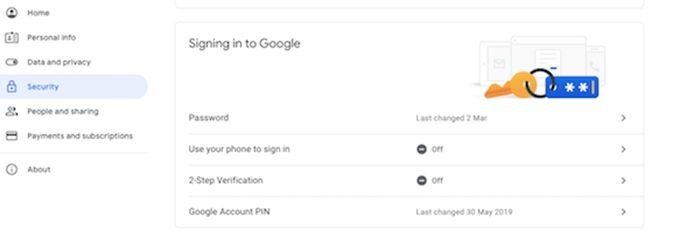
2] Click on the 2-Step Verification option in the Signing into Google section. Now, click on the Get Started button.
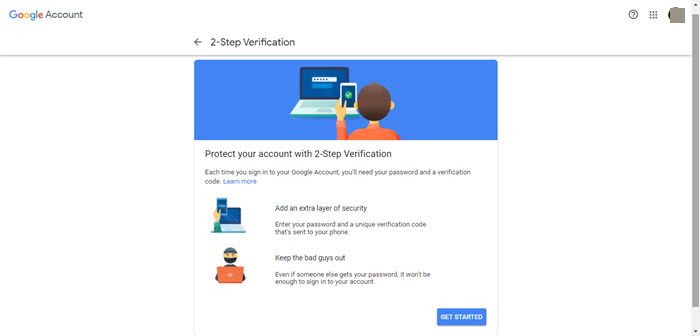
3] Confirm your account password and phone number. (Please note the Show more options menu provides you with various methods of authentication that also include a security key or prompt in your phone.)
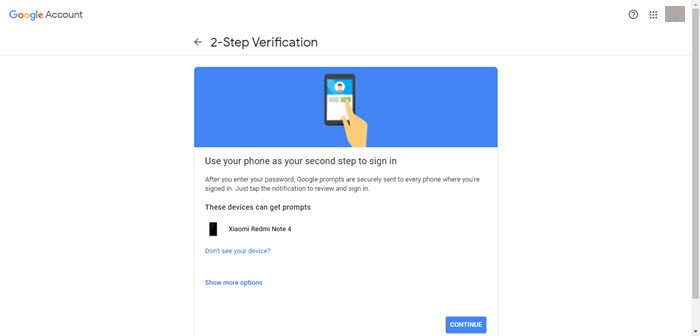
4] Click on the Continue button. A page appears that asks you if you would like to get a text message or a phone call for the unique code sent to your phone number. This code is necessary if you lose your phone or your second step is unavailable, you’ll need a backup option to help you get into your account. Click on Send.
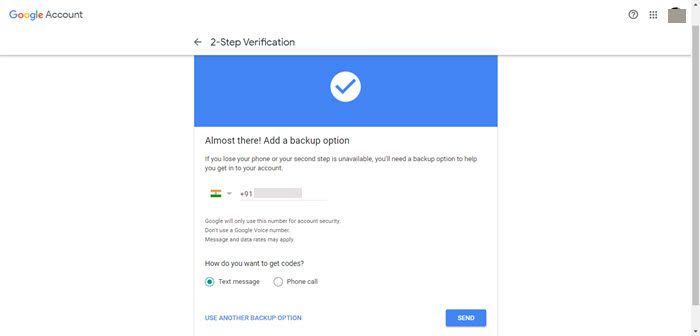
5] Now, enter the code received on your phone. And click on Next.
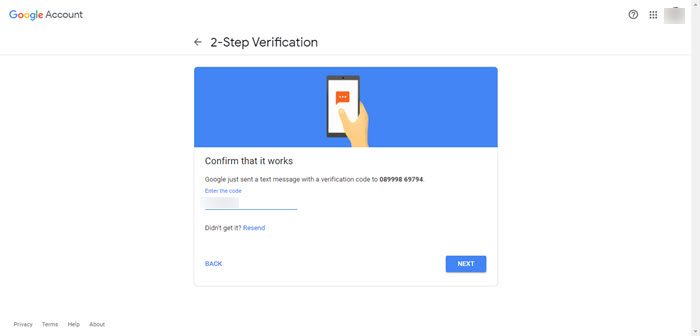
6] On the next page, click on the Turn on button.
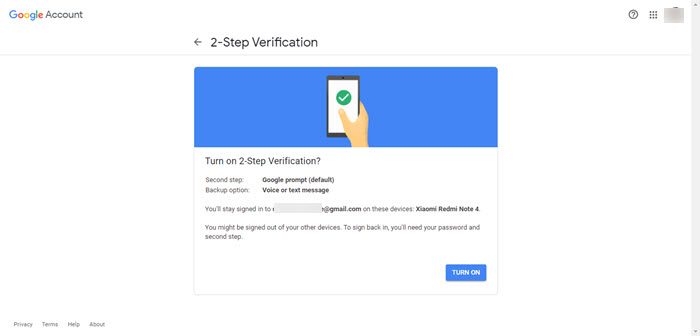
Once you have completed the steps, you can configure a secure password to use with Outlook.
Steps to configure Gmail with Outlook:
1] Open Outlook.
2] Now, go to File, click on Info and then click on the Add account button in the Account Information section.
3] Confirm the Gmail account address to set up two-factor authentication. Click on Connect button.
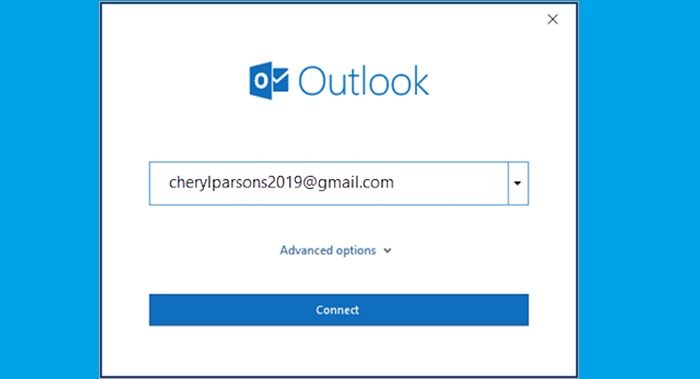
4] Click on the Next button. Confirm the Gmail account password.
5] Now click on the Sign-in button. You can then confirm the two-step verification code sent to your phone.
6] Click on the Done button. Click on the Allow button. You can also clear the “Set up Outlook Mobile on my phone” option.
7] Click on the Done option.
Outlook will now start sending and receiving emails from your Gmail account. With your, Gmail is connected with Outlook and you can conveniently access data in a single place. We hope you found the above-mentioned steps in the guide useful. Do let us know in case of any queries.
Now read: How Attackers can Bypass Two-factor Authentication
Why Outlook isn’t accepting my password?
If Outlook isn’t accepting your password and you know you’re using the right password for your Gmail account, you might have an older version of Outlook that doesn’t currently support this faster Gmail setup option. In that case, you’ll need to use two-factor authentication and an app password to help verify that you’re the person trying to access your Gmail account.
Related: How to add Two Step Verification to your Google Account.
Can I add a Gmail account in Outlook without setting up two-factor authentication?
Gmail lets you add your account to Outlook without setting up two-factor authentication and using an app password. However, you have to turn on a setting that allows “less secure apps” to connect to your account. This kind of setup is not recommended. Two-factor authentication and an app password protect your account.
Read: How to enable Two Step Authentication in Firefox for Windows.
Leave a Reply